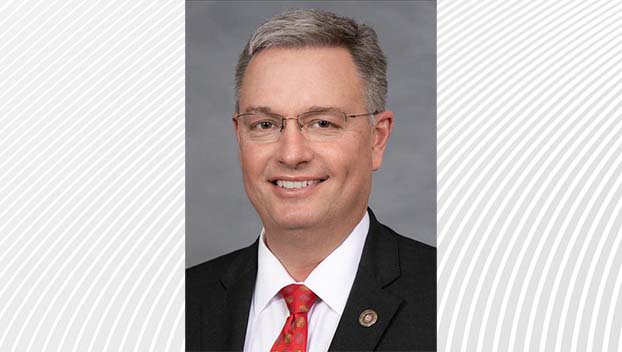State Senate passes Parents Bill of Rights; Bill draws local support and criticism
Published 2:45 pm Friday, February 10, 2023
|
Getting your Trinity Audio player ready...
|
The North Carolina State Senate passed the “Parents’ Bill of Rights” (SB 49) on Tuesday, Feb. 7. The bill is meant to cultivate more transparency and communication between public school faculty and parents of students. It is meant to allow parents more oversight of materials and curriculum taught in their child’s or childrens’ classroom(s) as well as inform parents about their child’s mental well-being at school.
It also has school personnel notify parents of health services offered to students at the beginning of each school year, and informs parents of their legal rights and responsibilities relating to their child’s education. It “codifies several rights parents have in education, including seeking medical or religious exemptions from immunization requirements and to have their child evaluated for an academically or intellectually gifted program, or for identification as a child with a disability,” according to State Senate Republicans.
The Beaufort County Board of Education already has policies in place that address parents’ ability to see what their child or children are learning. For example, policy code 1310/4002 states each parent is “encouraged to learn about the educational program, the educational goals and objectives of the school system, and his or her own child’s progress. The board also encourages parents to participate in activities designed by school personnel to involve them, such as parent conferences, in order to encourage effective communication.”
Written in the same policy, the local board directs principals or another appointed person to write a “parental involvement plan as a part of the school improvement plan.” This plan has several elements including “meaningful two-way communication between home and school; involvement of parents and guardians in students’ learning; involvement of parents and guardians in school decisions that affect children and families and promotion of student health awareness.”
But what is making the bill popular and why it is receiving criticism is how it addresses conversations on gender and sexuality in grades Kindergarten through fourth grade.
State Senate Majority Whip Jim Perry (R-District 2) is a sponsor of the bill, because he said he has seen multiple things going on in North Carolina and the United States that he does not agree with including topics he feels are inappropriate for young children to talk about.
Perry said Parents’ Bill of Rights “reaffirms and clarifies” existing laws, but it also disallows conversations about topics related to gender and sexuality which are seen as inappropriate for students in Kindergarten through fourth grade.
“What we are saying is that in Kindergarten through the fourth grade when a kid is six, seven, eight, nine – we do not believe that the topics of gender and sexuality should be part of the curriculum,” Perry said.
According to Senate Republicans, the bill “sets standards for age-appropriate instruction for our youngest students and prevents schools from withholding information relevant to a child’s well-being,” and it “prohibits instruction on gender identity, sexual activity, or sexuality in K-4, and requires schools to notify parents of any changes in the name or pronoun of a student, given there are no credible concerns about the child’s safety if a parent is notified,”
“This bill would not ban a student from talking about their unique family structure or asking a question. All it does is simply prohibit sexuality, sexual activity, and gender identity from being part of the curriculum in those grades.”
For context, students enrolled at public schools in North Carolina begin conversations about sexual health in the seventh grade, per state general statute § 115C-81.30. This statute requires public schools to provide medically accurate, age-appropriate information to students about sexual and reproductive health. The statute allows “opportunities for interaction between the parent or legal guardian and the student” should a parent not wish their child to participate in sex education.
The bill is drawing criticism from an education organization and a married couple from Bath.
In an email sent to the Daily News, Public Schools First NC expressed their disappointment in the passing of the Parents’ Bill of Rights, because they feel it should not be a priority compared to other issues in statewide education like reversing learning loss after the COVID pandemic forced schools to be remote and increasing teachers’ wages.
“With weekly reports of worsening student mental and behavioral health and growing teacher shortages in the news, we encourage the General Assembly leadership to focus on providing the resources to provide the mental health services our students and their families need and keep our certified teachers in the classroom,” Communications Director for Public Schools First NC, Heather Koons wrote. “The North Carolina General Assembly has the responsibility through our State constitution to provide a sound basic education for all students and that should be where they are putting their focus, not on a bill like. SB 49 which has the potential to harm our most vulnerable students.”
Public Schools First NC is a statewide nonpartisan, nonprofit organization focused solely on pre-K–12 public education issues, according to their website. They collaborate with parents, educators, business and civic leaders, and communities across North Carolina to advocate for one unified system of public education in an effort to prepare students for productive citizenship.
A potential to harm some of the most vulnerable students is a concern of Bath resident Dr. David Taylor and his husband. Taylor’s doctorate is in Education Leadership and he served as director of information planning for the North Carolina Department of Public Instruction for two years and served several local school districts at various levels.
Taylor was a junior at New Bern High School in 1986 when came out as a gay man. It was a challenging time, because he was considering self-harm, he shared. He was able to confide in one of his teachers who provided him with encouragement and support.
“One of my high school teachers saw me very upset, and she came to me and she wanted to know what was wrong…I looked at her and said ‘I think I’m gay.’ At that point in time, I was contemplating self-harm. I was contemplating what to do… So this lady sat down and probably spent two hours with me talking about how I felt and then she gave me some perspective that really made me feel like that it was all going to be okay.”
Taylor’s concern with Parents’ Bill of Rights is that if it existed when he was a high school student, his teacher might have not wanted to get involved in his life and help him, because it could cause risks in her profession. “If that teacher had done that, I might not be here…,” Taylor said.
“Because a kind teacher reached out and cared and felt like she could have a conversation with me, I’m here and I am a productive member of society,” he continued.
He fears that if school personnel are required to communicate to parents about a child’s decision to change their pronouns it could dissuade teachers from reaching out to students who may be struggling because they don’t want to get involved. On the other hand, he fears that if a teacher shares with parents their child’s change in sexuality, it could make the home environment unsafe. In addition, he feels it is not the school’s responsibility to tell parents if their child’s sexuality has changed, but rather it is up to the child to say when they are comfortable.
Most of all, he fears that if school personnel are required to share with parents any changes of their child’s sexuality, then it could make that child feel different or like “the other.” That if either the student’s sexuality is revealed or that they have gay parents then it could make them feel different from their classmates and lead to bullying.
What he would like to see are schools be safe places for LGBTQ+ students to learn about sexuality and have the ability to confide in teachers about how they are feeling without the risk of being exposed or humiliated. He shares a hope with LGBTQ+ students that they grow up having normal childhood experiences.
The Parents’ Bill of Rights is headed to the North Carolina House for consideration.







